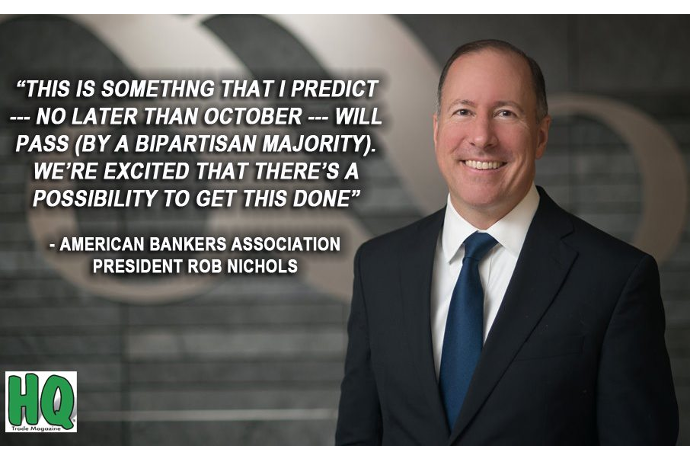
The head of the American Bankers Association (ABA) is predicting that the House of Representatives will pass legislation allowing banks to service state-legal marijuana businesses as early as this month and no later than October.
In an interview on the podcast Engage with Andy Busch that was released on Friday, ABA President and CEO Rob Nichols said that his group will be actively lobbying for the bipartisan cannabis banking bill in order to provide clarity to financial institutions that currently worry that taking on marijuana-related clients will put them at risk of federal penalization.
“We have banks and their customers and clients that are throwing up their hands say that we need this to be fixed,” Nichols said.
“The consequences extend beyond cannabis growers, shops, and dispensaries to any person or business that derives revenue from a cannabis firm,” Nichols added. A perfect example, he explained, is lending company that lends money to a mall owner or property management company that leases space to a cannabis-related business.
Nichols emphasized the importance of the Secure and Fair Enforcement (SAFE) Banking Act, which currently has 206 cosponsors in the House, including 26 Republicans. If approved it would remove regulatory restrictions on the financial institutions in legal states.
“This is legislation that already passed in the House Financial Services Committee early in this calendar year by a huge bipartisan margin, and this is something that I predict — as early as September—probably no later than October—will pass the full House of Representatives by a bipartisan majority, which is exciting,” Nichols said.
“We’re excited that there’s a possibility to get this done. We’ll be pushing very hard,” he said. “Again, we understand the cultural, societal and moral implications of this issue, but we need federal rule clarity so banks know who they can and cannot lend money to.
“What we’re working on is having banks that are supervised and regulated based on the business profile, activities and underlying risk profile.”












